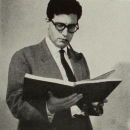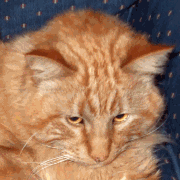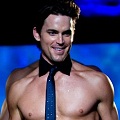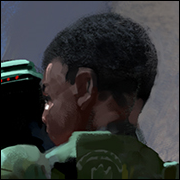|
Patrick Spens posted:Can you expand on this? Because it seems obviously wrong to me. Because commercial success is a representation of the text's success as a product, not as an experience. It is taking art and rendering it Pepsi. Besides that, even as a product, the measurement is false. The idea that the "appeal" (as ambiguous a measurement as one could ever assume to ask for) can be determined through popular success is the same that suggesting Coke is better than Pepsi on an objective level because it sells more worldwide. And that is something as superficial as a soda flavor. Imagine taking that same broken logic and trying to extrapolate it into art. Measuring the success of a product only speaks to its qualities as a product. You cannot measure to the artistic merit of something through the lens of product and consumption. The idea that we can is part of the cultural brainwashing of capitalism. MockingQuantum posted:I'm sort of lucky that I dodged both of those, I got to see Frankenstein and To Kill A Mockingbird murdered instead, and I had read both before they got forcibly deconstructed, so at least I had a chance to enjoy them on their own merits. I think I lucked out the most in never having to read The Old Man and the Sea in high school because its one of my favorite books, but I absolutely know high school would have killed it.
|
|
|
|

|
| # ? May 22, 2024 06:09 |
|
the use of commercial success as a proxy for artistic quality runs into the immediate problem of marketing practices as a confounding variable
|
|
|
|
Mel Mudkiper posted:The two most miserable experiences I can remember in high school were The Scarlet Letter and Lord of the Flies, and both of thes books were essentially hijacked in the name of a sort of objective puzzle solving reading. I hope one day to return to those books, especially Scarlet Letter, and allow myself to find my own way through the text instead of having to decode what it means that the seaweed made a green A. My teacher in high school mercifully avoided the "book as puzzle box" approach to The Scarlet Letter. Instead we got like a month of "Is Hester feminist?" to the exclusion of nearly anything else one might talk about when reading The Scarlet Letter which was its own kind of stupid, but at least it was easy to ignore and just forge ahead with my own reading of the story. It's easily my favorite American novel and, for better or weirder, it kick-started my lasting obsession with the Puritans.
|
|
|
|
Mel Mudkiper posted:Because commercial success is a representation of the text's success as a product, not as an experience. It is taking art and rendering it Pepsi. Most art forms originated in popular entertainment, including all or nearly all of the storytelling arts. (The remainder originated as entertainment or status-signaling for cultural elites.) A criticism that lacks any language or interest in discussing what makes such a work succeed as entertainment has lost something fundamental and important, whether out of pure hipsterism or foolish Marxism. The difference between the popularity of Coke and Pepsi may come down to marketing, but the difference between the popularity of both of those over carrot juice can be attributed to something real about popular taste and the neurochemical effects of caffeine and processed sugars.
|
|
|
|
The Priory of the Orange Tree: Christian Allusions in the Hands of Gay Feminism The Priory of the Orange Tree is a recent novel by Samantha Shannon reinventing the medieval legend of St George and the Dragon from a feminist perspective. It takes place in an Elizabethan England analogue attempting to prepare for the awakening of "The Nameless One", an evil dragon of fire sealed away for a thousand years. Sound familiar? The quote that literally opens this book posted:And I saw an angel coming down out of heaven, having the key to the Abyss and holding in his The problem the book runs into is that it seemingly wants to talk about Christianity, medieval chivalry, and its relationship to women without involving anything that resembles Christianity at all. Here, I'll spoil a big reveal. Shannon posted:"I had not seen Galian [the St George stand in] for many years. But when he heard of the plague and the Nameless One wreaking terror in Lasia, he sought me out again, pleading for my help. His dream, you see, was to unite the warring kings and princelings of Inys under one crown, and to rule a country according to the Six Virtues of Knighthood. To do that, he had to earn their respect with a great deed. He wanted to slay the Nameless One, and to do that, he would need my magic. Like a fool, I gave it him, for by this time I loved him not as a mother. I loved him as companions do. In return, he swore he would be mine alone. This version of the St George legend is that St George wanted power for himself, so he got his adoptive witch mother to give him a magic sword and went to fight Satan to rescue a princess. Instead of a noble knight, he was a cowardly poltroon who went down like a chump. The princess grabbed the sword, stabbed Satan, found the Biblical forbidden fruit and ate of it while fleeing into the desert. This turned her into a wizard and she and another queen used their wizard powers to cast Satan into the Abyss for a thousand years. Meanwhile Galian the Deceiver (St George) went back to Inys (England) and lied about how the dragon would be sealed while his family sat the throne. He then founded the "virtudom" religion founded on the six chivalric virtues...and there my confusion began. The medieval St George legend has the saint bring the (muzzled) dragon into the town and offer to kill it if the townsfolk convert. This makes sense. What doesn't make sense is these virtues being venerated outside a Christian context, because Jesus was incredibly important to a medieval knight. The body of Christian thought that went into tales like the Quest for the Grail is replaced with a shallow parody where the Deceiver and 6 knights (one for each virtue) welcome believers into heaven and proclaim themselves the only true faith, but does not attempt to grapple with the questions Christianity does. The religion has the trappings of Christianity such as "the sign of the sword" and calling itself Virtudom instead of Christendom, but it fails to be a meaningful critique of medieval culture and just comes off like this: /Update%2001/33-prologue47.jpg) The waters are further muddied by the Pope/Monarch family descended from the Deceiver all being women, raising the question of whether this intended to be a masculine power structure opposed by the True Faith of the Mother Goddess - the Witch Princess - or just another authority in a world run by women. At least one of the Six Knights is a woman I suspect there is a statement about how Christianity spread by appropriating pagan myths - as seen by the princesses being overwritten by the Deceiver - and is historically associated with control. Ignoring the multitude of pagan faiths used to control empires (Pharoah? What are you doing here?), the characters all seem fine using virtudom as a means of control to mobilize armies against Satan. Ultimately the book's themes are undermined by Shannon's desire to "worldbuild" out of a mixture of history and legend. The climactic battle echoes Sir Francis Drake defeating the Spanish armada, with the fleets of Elizabethan England, ancient China, shogunate Japan, and a bunch of friendly Asian dragons facing the Spanish fleet led by Satan, his dragons, and the "Draconic Army" made of various medieval monsters from when the dragons banged animals. This turns a conflict historically between Catholics and Protestants into a spiritual battle between the leader of the Catholic Church and literal Satan, who rather than deceiving the nations gets about 3 lines before a bunch of superpowered women stab him to death. All this said, I can't write the book off entirely. The dialogue is actually written in period-appropriate language and the word choices aren't anachronistic - something that sets the book miles above most contemporary fantasy. That said, the prose is merely competent, not great. Here's her description of The Nameless One, a legendary, Satanic evil: Shannon posted:She had heard stories of the beast. Every child had grown up hearing about the nightmare that had crawled out of the mountain to ravage the world. She had seen images of him, richly painted in gold-leaf and red lacquer, with blots of soot-ink where eyes ought to be. It's not nearly as awful as much of the dreck in these threads, but it's not great. Lacustrine treasure ships do not exist. I have no idea how big they are. I assume they are Chinese junks? It also falls into the trap of having no emotion. This is the ancient serpent sealed away for 1000 years, the beast whose rising heralds the end of days and you just dispassionately describe his appearance? Yeesh. I was going to do a bit on the absurdity of gay marriage being legal in a world run by feudalism that values the continuation of a pure bloodline, but it's really just a microcosm of how the novel tries to blend ancient and modern and results in a whole plausible by neither.
|
|
|
|
|
Mel Mudkiper posted:taking art and rendering it Pepsi. this is a nonsensical analogy but it would be a really good thread subtitle
|
|
|
|
Thranguy posted:
This analogy is nonsensical. Are you trying to say we evolved to seek out trashy genre fic?
|
|
|
|
Take the plunge! Okay! posted:This analogy is nonsensical. Are you trying to say we evolved to seek out trashy genre fic? both of them got kind of weird with their metaphors, but what thranguy said in his first paragraph is very smart and good
|
|
|
|
onsetOutsider posted:both of them got kind of weird with their metaphors, but what thranguy said in his first paragraph is very smart and good I think that’s getting uncomfortably close to the old “well, Dickens was very popular in his time, so (current genre author) will be considered a classic one day”, which is just plain wrong. There is nothing wrong with having a Marxist or feminist critical reading of a literary work. They are often extremely good at describing why certain popular yet worthless works capture wide audiences. The said audiences wouldn’t like to hear what they have to say about their favorite works, though. Trying to hand wave some of the major approaches to literary criticism away by describing them as hipsterish is both snide and ignorant.
|
|
|
|
Take the plunge! Okay! posted:I think that’s getting uncomfortably close to the old “well, Dickens was very popular in his time, so (current genre author) will be considered a classic one day”, which is just plain wrong. There is nothing wrong with having a Marxist or feminist critical reading of a literary work. They are often extremely good at describing why certain popular yet worthless works capture wide audiences. The said audiences wouldn’t like to hear what they have to say about their favorite works, though. Trying to hand wave some of the major approaches to literary criticism away by describing them as hipsterish is both snide and ignorant. i won't speak for thranguy, but my interpretation of his post was not that the factor of "entertainment" is in any way superior or more essential than any of the other factors focused on in literary critisism. just that it should be considered as well. and that dismissing it out of hand is to ignore a large part of how the literary world functions
|
|
|
|
onsetOutsider posted:i won't speak for thranguy, but my interpretation of his post was not that the factor of "entertainment" is in any way superior or more essential than any of the other factors focused on in literary critisism. just that it should be considered as well. and that dismissing it out of hand is to ignore a large part of how the literary world functions I think entertainment is highly subjective. A book I find entertaining might bore you out of your skull and vice versa. A book that is more entertaining (as in, more people would find it entertaining if they read it) won’t necessarily sell better if it has poor marketing etc. But the biggest problem of that argument for me is that it goes against my expectation that literary criticism shouldn’t be based on factors outside the text that is being criticized.
|
|
|
|
I think that guy just wants people to quit criticizing and mocking popular and entertaining author Brandon Sanderson
|
|
|
|
Thranguy posted:Most art forms originated in popular entertainment, including all or nearly all of the storytelling arts. (The remainder originated as entertainment or status-signaling for cultural elites.) A criticism that lacks any language or interest in discussing what makes such a work succeed as entertainment has lost something fundamental and important, whether out of pure hipsterism or foolish Marxism. You are deliberating obfuscating my objection to your argument. Plenty of critical readings look at reasons behind why a text became popular. There are entire schools of sociological criticism that look at the unique factors in a culture that lead to a text becoming well-known. No one is arguing there is no value in exploring why a text hit a zeitgeist. The issue is your assertion is that its success as a "product" is a way to measure its success as "art." This is the point of saying you take art and render it pepsi. At some point in a capitalist culture, everything becomes a "brand" or "product". In this way, things either become successful or non-successful not because of the merits of the text, but because of the merits of the brand associated with the text. A brand being recognizable ends up becoming a selling point for the brand, and at that point the actual merits of the text are entirely superficial. High sales speak more to the success of marketing and distribution than they speak to the success of the [i]text[i] Also, please explain to me how Marxist criticism is foolish onsetOutsider posted:i won't speak for thranguy, but my interpretation of his post was not that the factor of "entertainment" is in any way superior or more essential than any of the other factors focused on in literary critisism. just that it should be considered as well. and that dismissing it out of hand is to ignore a large part of how the literary world functions Entertainment is not discounted in criticism. Any good subjective criticism will look at what elements of a text create significance for the reader and respond to them. The issue is that "high sales" doesn't equal "more entertaining." The problem with using sales to measure "entertainment" is that it is trying to use the market to assert a subjective value.
|
|
|
|
Mel Mudkiper posted:The issue is that "high sales" doesn't equal "more entertaining." The problem with using sales to measure "entertainment" is that it is trying to use the market to assert a subjective value. i completely agree with you there.
|
|
|
|
Before I start, I want to thank you for this, and reinforce the message:TheGreatEvilKing posted:Don't touch the poop Way of Kings Part 4 The first three installments of this read-along of Way of Kings focused solely on technical aspects. The first showed that Sanderson's prose is boring and uninteresting. The second took a look at his much-vaunted world-building in the Purelake, a massive lake hundreds of miles across that has lucky fish. The third went through the remained of the Purelake interlude and demonstrated that it has no plot relevance, no thematic importance, and serves no purpose in the story besides acting as a callout to some of Sanderson's other books and his weird extended universe thing. I am currently on page 309, out of 1252. That puts me almost exactly 25% of the way through this book. Given that a lot of books would be wrapping up by this page count, I think it's worth checking in on each of our MC's and seeing what they've been up to. Kaladin Stormblessed quote:"The world just changed, Gaz. I died down at that chasm. Now you've got my vengeful spirit to deal with." Kaladin annoys me. He's just... not very interesting as a character. He's badass, then gets depressed for a while, then feels better, and then he's immediately badass again. Tor did a blog post about how this book is about mental illness and "broken people saving the world." So far I'm not impressed. I'm equally unimpressed by the class warfare theme that Sanderson tries to use Kaladin for. I'll give the book a bit more time before I dig too much into those, though. Also, his character arc is... not what you'd expect. quote:"You were right, Father," Kaladin whispered. "You can't stop a storm by blowing harder. You can't save men by killing others. We should all become surgeons. Every last one of us..." Shallan Davar quote:Sometimes, she wondered how it had come to this. She was the quiet one, the timid one, the youngest of five siblings and the only girl. Sheltered, protected all her life. And now the hopes of her entire house rested on her shoulders. quote:She was pale-skinned in an era when Alethi tan was seen as the mark of true beauty, and though she had light blue eyes, her impure family line was manifest in her auburn-red hair. Not a single lock of proper black. Her freckles had faded as she reached young womanhood - Heralds be blessed - but there were still some visible, dusting her cheeks and nose. quote:"See, she was too discriminating. The body needs many different foods to remain healthy. And the mind needs many different ideas to remain sharp. Wouldn't you agree? And so if I were to only read those silly Szeth-son-son-Vallano, Truthless of Shinovar quote:Szeth-son-son-Vallano, Truthless of Shinovar, wore white on the day he was to kill a king. The white clothing was a Parshendi tradition, foreign to him. But he did as his masters required and did not ask for an explanation. quote:What would these men say if they knew that the man who emptied their chamber pot was a Shardbearer and a Surgebinder? A Windrunner, like the Radiants of old? The moment he summoned his blade, his eyes would turn from dark green to pale - almost glowing - sapphire, a unique effect of his particular weapon. quote:Szeth gloried in being wasted; each day he was made to clean or dig instead of kill was a victory. That evening five years ago still haunted him. Before then, he had been ordered to kill - but always in secret, silently. Never before had he been given such deliberately terrible instructions. Dalinar Kholin quote:You must unite them, the strange, booming words had told him. You must prepare. Build of your people a fortress of strength and peace, a wall to resist the winds. Cease squabbling and unite. The Everstorm comes. Dalinar (and thus the actual plot) was only introduced after the interludes. Since he's only gotten twenty or thirty pages so far, I'll withhold judgement on him. This is a complete summary of everything important that's happened in 310 pages. To summarize: Kaladin got carted around as a slave, tried to kill himself, and now he's trying to get the bridge crew to work out. Shallan begged for an apprenticeship until she got it. Szeth assassinated a king for reasons we don't know. Dalinar had some dreams, wagged his finger at some of the other Highprinces for their gamesmanship, and he's learned that the book actually has a plot. All of this is punctuated with a half dozen different battle scenes, none of which are interesting. All of the characters have a lot of backstory that they're explicitly refusing to tell us. All pertinent questions about the world at large are ignored until Sanderson decides he wants to reveal them (why did the Parshendi have Gavilar assassinated? What are these weird spren things? What does the prelude set thousands of years ago have to do with anything?) No overarching themes have shown up: classism is only in Kaladin's story. The search for knowledge is only in Shallan's story. And Szeth and Dalinar haven't had enough page time to establish any themes. Everything is just drawn out and out and out to fill up page space. No wonder this is 1200 pages long. We're 300 pages in and nothing has happened.
|
|
|
|
Intentional doublepost: is there any feedback on my format here? Due to this book's scale and impact on the genre, I felt it deserved more than just a single effort-post. However, with the shocking lack of content in this book, I couldn't justify a chapter-by-chapter readalong like BotL did for Rothfuss. There really just isn't enough to the story. My compromise was to do a series of posts each focusing on a specific aspect of the writing (prose, characters, worldbuilding, etc. Soon I'll start going into specific themes.) Is this approach working for people? I've still got another 950 pages, so I have plenty of time to tailor this to the thread. Dear god I have another 950 pages to go. Dear god I have another 950 pages to go.
|
|
|
|
Fine by me. I really think the darkeyes/light eyes stuff is more of a racism deal, just with eyes instead of skin. I'll have more to say once you get to a certain part.
|
|
|
|
|
Karia posted:Is this approach working for people?
|
|
|
|
Karia posted:Everything is just drawn out and out and out to fill up page space. Oddly, I'd appreciate a little more detail on just how Sanderson manages to waste so many pages. What goes into 300 pages of fluff; what does that fluff look like? Is he a rampant worldbuilder, a repressed dressmaker like Robert Jordan was, someone who likes endless pages of pointless conversation, something else? I'm getting the sense that a lot of it is worldbuilding, but is it literally all storing up future plot seeds? Xotl fucked around with this message at 01:17 on Mar 18, 2019 |
|
|
|
Pacho posted:Also, I've been meaning to talk about this for a while. It seems that in anglo schools there's a lot of emphasis in analyzing a text for themes and while I don't think it's a bad excercise, maybe it's a bit too much for young kids. Here in my country in South America the main focus of literature classes in primary and secondary school is mastery of the language (and that's the metric by which a book is considered proper literature) and you're supposed to just enjoy the books because the language conveys meaning in an aesthetically interesting way; later in school we go a bit into style/prose but I didn't touch thematic analysis until college, when you're taking specific lit courses and wanna delve into theme, genre, symbolism, semiotics, etc. it does seem like anglo americans have problems with reading because they dont get told that sentences are the basic building block and that you need to look at that stuff before getting into themes and other similar things. if i was a cool smart man with a lot of time maybe i'd write a big ol effort post about how this is the root of contemporary anglo american fiction being mostly bad.
|
|
|
A human heart posted:it does seem like anglo americans have problems with reading because they dont get told that sentences are the basic building block and that you need to look at that stuff before getting into themes and other similar things. if i was a cool smart man with a lot of time maybe i'd write a big ol effort post about how this is the root of contemporary anglo american fiction being mostly bad. I would love to read that, personally.
|
|
|
|
|
I appreciate the Xenogears ref by the way
|
|
|
|
Xotl posted:Oddly, I'd appreciate a little more detail on just how Sanderson manages to waste so many pages. What goes into 300 pages of fluff; what does that fluff look like? Is he a rampant worldbuilder, a repressed dressmaker like Robert Jordan was, someone who likes endless pages of pointless conversation, something else? I'm getting the sense that a lot of it is worldbuilding, but is it literally all storing up future plot seeds? Worldbuilding is the biggest factor. And it's definitely not all for plot purposes. How much do you want to know about currency? We've gotten probably five pages collectively describing how they use glowing magical gems embedded in glass spheres as money, and how they leave them outside during storms to recharge the magic. Did you know that you can use them as reading lights? Or for lighting during surgery? But it's better if they're all the same kind of gem, because otherwise they give off different colors. Or how about worms? We've got a page describing how to remove worms from their crops so they won't eat all the grain. Or we can talk about the Purelake, and how it's a single lake hundreds of miles wide with lucky fish. Four pages. And of course, we get constant interruptions in the middle of all the battle scenes to talk about how cool their magic armor and swords are. Or we can talk about spren. There's this one kind that shows up around dead chasmfiends. Nobody knows why. I don't know if it's important but now you know! Isn't that interesting? It all adds up. Really fast. TheGreatEvilKing posted:I really think the darkeyes/light eyes stuff is more of a racism deal, just with eyes instead of skin. Not sure what you're referring to, but please share once we get there! I see a classism theme based on how much he plays up the "games of nobles with peasants caught in the middle" aspect for the war. The "go to war to gain renown so you can marry the noble girl" thing also strikes me as more of a class thing. But there's a lot I don't remember about this book. Whatever it ends up as, I hope it's better than Mistborn's "the lower classes were genetically engineered to be subservient and better at manual labor after we wrecked the ecosystem" thing. That was certainly interesting. A human heart posted:if i was a cool smart man with a lot of time maybe i'd write a big ol effort post about how this is the root of contemporary anglo american fiction being mostly bad. And please do this.
|
|
|
|
Mel Mudkiper posted:I appreciate the Xenogears ref by the way Same. When it comes to bad authors cramming travelogue segments into their books, are they just ripping off the wrong things from Tolkien? I remember as a child I was overwhelmed by the Lord of the Rings, but after reading modern fantasy, Tolkien seems positively efficient. Or do you all think there's a different origin for that tendency?
|
|
|
I like seeing a good chapter-by-chapter readthrough, but I think with a lot of sf/f books the moment you start to do that you realize, like I did with Emperor's Blades, there's not really much to talk about without getting very repetitive.Karia posted:Worldbuilding is the biggest factor. And it's definitely not all for plot purposes. How much do you want to know about currency? We've gotten probably five pages collectively describing how they use glowing magical gems embedded in glass spheres as money, and how they leave them outside during storms to recharge the magic. Did you know that you can use them as reading lights? Or for lighting during surgery? But it's better if they're all the same kind of gem, because otherwise they give off different colors. Or how about worms? We've got a page describing how to remove worms from their crops so they won't eat all the grain. Or we can talk about the Purelake, and how it's a single lake hundreds of miles wide with lucky fish. Four pages. And of course, we get constant interruptions in the middle of all the battle scenes to talk about how cool their magic armor and swords are. Or we can talk about spren. There's this one kind that shows up around dead chasmfiends. Nobody knows why. I don't know if it's important but now you know! Isn't that interesting? All of this stuff always feels like it's there to basically pad out a short story into a novel. Like, they write maybe 50,000 words, the publisher says that's not enough for a sf/f novel, and so they just go back and shove words in.
|
|
|
|
|
There's this massive army that's been sitting in the middle of a barren wasteland for six years. So maybe those worms I mentioned are going to eat all the grain and there's going to be a famine and this army with overextended supply lines is going to starve? They literally feed the army with magic. So no, that's never going to be important. It's just random factoids.
|
|
|
Karia posted:There's this massive army that's been sitting in the middle of a barren wasteland for six years. So maybe those worms I mentioned are going to eat all the grain and there's going to be a famine and this army with overextended supply lines is going to starve? I feel there's an irony here with what Sanderson says about using magic to solve problems.
|
|
|
|
Karia posted:Not sure what you're referring to, but please share once we get there! I see a classism theme based on how much he plays up the "games of nobles with peasants caught in the middle" aspect for the war. The "go to war to gain renown so you can marry the noble girl" thing also strikes me as more of a class thing. But there's a lot I don't remember about this book. I saw it more as racial due to the hereditary biological trait of eye color, but your case for classism is fairly strong too. It's weird because I remember you can get promoted to Lighteyes so maybe I'm just wrong.
|
|
|
|
|
TheGreatEvilKing posted:I saw it more as racial due to the hereditary biological trait of eye color, but your case for classism is fairly strong too. It's... not a perfect analogy. The genetic component is definitely a weak point in my argument. I think there's even something about mixed children have a 50-50 chance of being lighteyes or darkeyes. I think we'll get a lot more about that once Kaladin starts interacting with the lighteyes, wouldn't surprise me if one of the bad guys goes on a rant about how darkeyes are inherently inferior. Or someone might accuse Kaladin of being a reverse-racist because he hates the lighteyes or something. I'll have to see how it plays out, I really don't remember that part of the book (basically all I remember after this point is Kaladin ping-ponging between saving the day and being an idiot.) But ultimately I'll probably make an intersectional/Marxist argument here: racism is one tool that has been exploited to maintain the power of the upper class, and is closely tied to other forms of discrimination. Supposedly darkeyes can actually become lighteyes if they win great feats in battle. But it hasn't happened in recent memory. Astonishingly, this hasn't happened to Kaladin according to the wiki.
|
|
|
Karia posted:Supposedly darkeyes can actually become lighteyes if they win great feats in battle. But it hasn't happened in recent memory. Astonishingly, this hasn't happened to Kaladin according to the wiki. Since you broke out the wiki... on Kaladin swearing the first vow his eyes turn light. Its implied the lighteyes are the descendants of the Knights Radiant who have superpowers that are vaguely divine?
|
|
|
|
|
Oh, hey, not remembering THAT. I'm surprised I didn't see that on the wiki, it's usually obsessively detailed. Or I just missed it while skimming. Bet he throws a temper tantrum about that one. Yeah, seems like a point in your favor. I'll keep an eye out for that. What the hell is up with Sanderson and genetic exceptionalism? Is this some Mormon thing? Guess I need to watch Book of Mormon again. Also I don't give a drat about spoilers. I'm reading this book for the second time so I can get the series off my to-read shelf without feeling too guilty. Post whatever evidence you want.
|
|
|
|
Wait, so Sanderson is writing a racism analogy where sufficient virtue can actually turn you into the privileged class? holy hell
|
|
|
|
A human heart posted:it does seem like anglo americans have problems with reading because they dont get told that sentences are the basic building block and that you need to look at that stuff before getting into themes and other similar things. if i was a cool smart man with a lot of time maybe i'd write a big ol effort post about how this is the root of contemporary anglo american fiction being mostly bad.
|
|
|
|
Antivehicular posted:Wait, so Sanderson is writing a racism analogy where sufficient virtue can actually turn you into the privileged class? holy hell That's not actually how it works. Wielding a Shardblade turns your eyes light. This is not actually heritable, IIRC, and doesn't even necessarily mean that you're virtuous. People with naturally light eyes were originally seen as superior by association with them, but this has been forgotten, to the point where it's implied that people misread references to "lighteyes" in ancient texts as referring to everyone with light eyes when it originally referred only to the Shardblade-wielding Knights Radiant. While in theory you could become a lighteyes by defeating an enemy Shardblade holder in battle, it's implied that this happened rarely, if ever, in practice before Kaladin, and as Amaram's actions show, it's doubtful that a darkeyes who defeated an enemy Shardbearer would actually be allowed to keep the Shardblade. It was basically a bootstraps myth to keep the darkeyes in line. Silver2195 fucked around with this message at 15:44 on Mar 18, 2019 |
|
|
|
Mel Mudkiper posted:Measuring the success of a product only speaks to its qualities as a product. You cannot measure to the artistic merit of something through the lens of product and consumption. The idea that we can is part of the cultural brainwashing of capitalism. But success as a product is connected to the qualities of the experience. Commercial success is a proxy for entertainment, not entertainment itself. If you want to make the argument that broad popularity isn't the same thing as artistic merit, I'd agree with you. But the idea that capitalist brainwashing is the only connection between "people spent money on a thing" and, "people liked a thing" is nonsense. Antivehicular posted:Wait, so Sanderson is writing a racism analogy where sufficient virtue can actually turn you into the privileged class? holy hell The legitimization and de-legitimization of authority is a running theme throughout Stormlight. Dalinar and Gavilar are both jumped up thugs who seek to legitimize their power by becoming the kind of virtuous rulers who would have deserved to be kings. As a class, lighteyes are the reverse. Greedy and violent thugs who cling to the signifiers of legitimacy even after the knowledge of what light eyes meant has been forgotten. Patrick Spens fucked around with this message at 17:42 on Mar 18, 2019 |
|
|
|
Patrick Spens posted:But the idea that capitalist brainwashing the the only connection between "people spent money on a thing" and, "people liked a thing" is nonsense. I have bad news for you
|
|
|
|
You can’t blame literally everything on “capitalism exists”.
|
|
|
|
Flesnolk posted:You can’t blame literally everything on “capitalism exists”. I also have bad news for you
|
|
|
|
Flesnolk posted:You can’t blame literally everything on “capitalism exists”. I mean, we can't stop him.
|
|
|
|

|
| # ? May 22, 2024 06:09 |
|
Flesnolk posted:You can’t blame literally everything on “capitalism exists”. Name one thing I can't blame on capitalism.
|
|
|


























